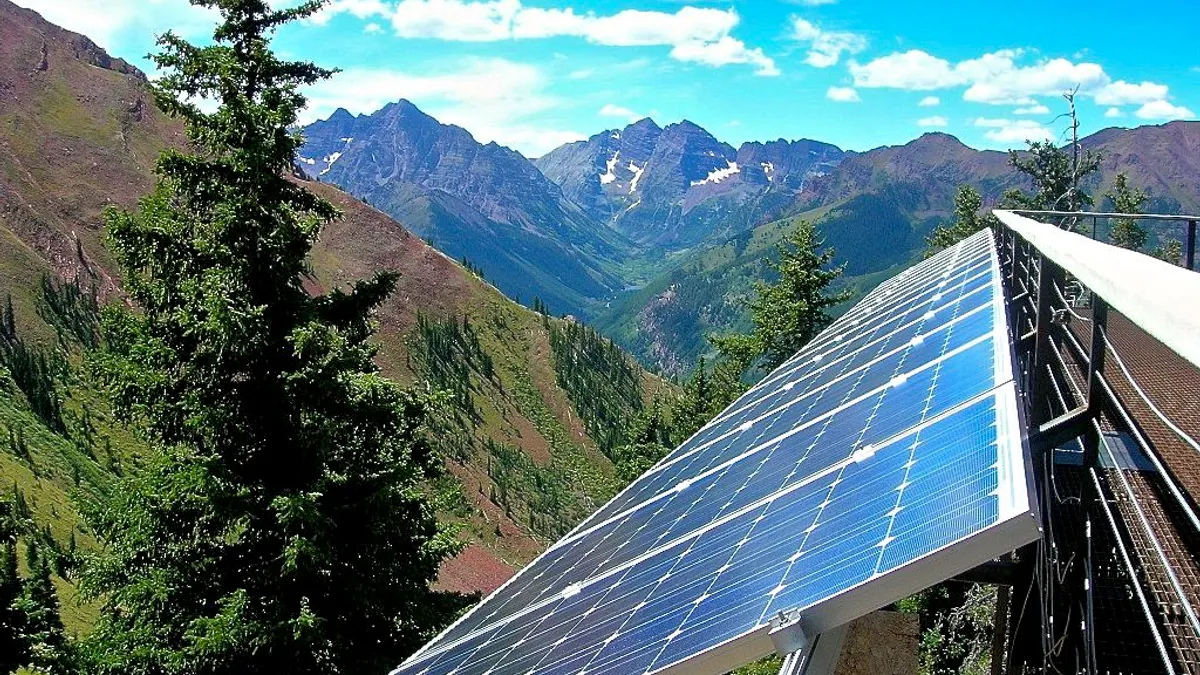Dive Brief:
- Xcel Energy Colorado on Wednesday filed its Clean Energy Plan with state regulators, proposing to retire a pair of coal units capable of generating 660 MW and add 1.8 GW of renewables, along with developing energy storage and purchasing power from existing gas resources.
- The plan calls for $2.5 billion of investment across eight counties, the utility said, and is expected to save customers $215 million.
- Last December, the company reported that it had received more than 400 individual proposals in response to a resource solicitation, including possible record-low prices for renewable energy paired with energy storage.
Dive Insight:
There are four major parts to Xcel's Colorado filing, with the most significant likely being the retirement of Comanche Units 1 and 2 in Pueblo, each about a decade early and capable of producing a combined 660 MW.
Under a business-as-usual scenario, the utility would have filed to develop 450 MW of new resources while continuing operations of Comanche 1 and Comanche 2. The retirement, however, means Xcel will replace the power with renewables — 1,100 MW of wind energy and 700 MW of solar. The plan also calls for energy storage: 275 MW, all to be "embedded" with solar generation.
In addition, the utility is proposing to ensure reliability by utilizing 380 MW of "existing flexible gas resources."
The plan would take Xcel's coal generation from more than 40% of its resources last year to less than a quarter within a decade, according to the Denver Post.
Xcel in its proposal explains it will own 27% of the renewable resources (500 MW of wind) and 58% of dispatchable and semi-dispatchable resources (380 MW of gas generation). While that would be "less than the ownership targets contemplated" in a previous stipulation, Xcel told regulators that it "believes that moving forward with a transition to clean energy is preferred."
Regulators will hold hearings later this year and a decision on the plan is expected in the fall. Xcel floated the plan last summer, at the time indicating it would require 700 MW of natural gas and/or storage.
In January, the utility revealed the results of a resource solicitation, returning a median price bid for wind-plus-storage projects of $21/MWh and a median bid for solar-plus storage of $36/MWh.
The new Colorado plan "is a true testament to how fast the cost of clean energy is dropping," a Sierra Club representative said in a statement.















